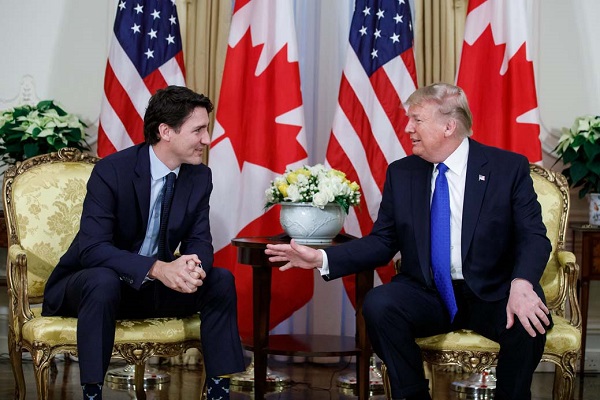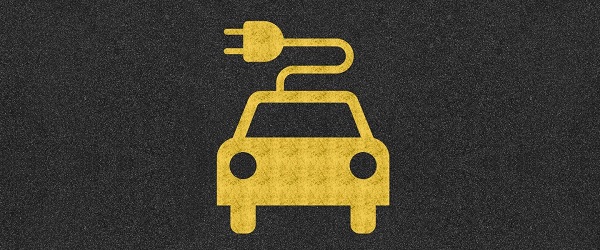Automotive
Bad ideology makes Canada’s EV investment a bad idea


It doesn’t bode well for our country that our economic security rests on tariff exceptions to be negotiated by Liberal politicians who have spent the majority of Trump’s public life calling him a “threat to liberal democracy” and his supporters racists and fascists. Their hostility doesn’t lend itself to fruitful diplomacy. In any event, Trump’s EV rollback and aggressive tariffs will spell disaster for the Canadian EV sector.
What does Donald Trump’s resounding win in the recent U.S. election mean for Canada? Unfortunately, there doesn’t seem to have been much thought about the answer to this question in Ottawa, because the vast majority of our political and pundit class expected his opponent to be victorious. Suddenly they’re all having to process this unwelcome intrusion of reality into their narrow mental picture.
Well, what does it mean?
It is early days, and it will take some time to sift through the various policy commitments of the incoming Trump Administration to unpack the Canadian angle. But one thing we do know is that a Trump presidency will be no friend to the electric vehicle industry.
A Harris administration would have been. But, Trump spent much of his campaign slamming EV subsidies and mandates, pledging at the Republican National Convention in July that he will “end the electric vehicle mandate on day one.”
This line was so effective, especially in must-win Michigan, with its hundreds of thousands of autoworkers, that Kamala Harris was forced to assure everyone who listened that the U.S. has no EV mandate, and that she has no intention of introducing one.
Of course, this wasn’t strictly true.
First, the Biden Administration, of which Harris was a part, issued an Executive Order with the explicit goal of a “50% Electric Vehicle Sales Share” by 2030. The Biden-Harris Administration (to use their own formulation) instructed their Environmental Protection Agency (EPA) to introduce increasingly stringent tailpipe emission regulations on cars and light trucks with an eye towards pushing automakers to manufacture and sell more electric and hybrid vehicles.
Their EPA also issued a waiver which allows California to enact auto emissions regulations that are tougher than the federal government’s, which functions as a kind of back-door EV mandate nationally. After all, auto companies aren’t going to manufacture one set of vehicles for California, the most populous state, and another for the rest of the country.
And as for intentions, though the Harris camp consistently held that her prior policy positions shouldn’t be held against her, it’s hard to forget that as senator she’d co-sponsored the Zero-Emission Vehicles Act, which would have mandated that all new vehicles sold in the U.S. be “zero emission” by 2040. During her failed 2020 presidential campaign, Harris accelerated that proposed timeline, saying that the auto market should be all-electric by 2035.
In other words, she seemed pretty fond of the EV policies which Justin Trudeau and Steven Guilbeault have foisted upon Canada.
For Trump, all of these policies can be filed under “green new scam” climate policies, which stifle American resource development and endanger national prosperity. Now that he’s retaken the White House, it is expected that he will issue his own executive orders to the EPA, rescinding Biden’s tailpipe instructions and scrapping their waiver for California. And though he will be hindered somewhat by Congress, he’s likely to do everything in his power to roll back the EV subsidies contained in the (terribly named) Inflation Reduction Act and lobby for changes limiting which EVs qualify for tax credits, and how much.
All of this will be devastating for the EV industry, which is utterly reliant on the carrots and sticks of subsidies and mandates. And it’s particularly bad news for the Trudeau government (and Doug Ford’s government in Ontario), which have gone all-in on EVs, investing billions of taxpayer dollars to convince automakers to build their EVs and batteries here.
Remember that “vehicles are the second largest Canadian export by value, at $51 billion in 2023 of which 93% was exported to the U.S.,” according to the Canadian Vehicle Manufacturers Association, and “Auto is Ontario’s top export at 28.9% of all exports (2023).”
Canada’s EV subsidies were pitched as an “investment” in an evolving auto market, but that assumes that those pre-existing lines of trade will remain essentially unchanged. If American EV demand collapses, or significantly contracts without mandates or tax incentives, we’ll be up the river without a paddle.
And that will be true, even if the U.S. EV market proves more resilient than I expect it to. That is because of Trump’s commitment to “Making America Great Again” by boosting American manufacturing and the jobs it provides. He campaigned on a blanket tariff of 10 percent on all foreign imports, with no exceptions mentioned. This would have a massive impact on Canada, since the U.S. is our largest trading partner.
Though Justin Trudeau and Chrystia Freeland have been saying to everyone who will listen how excited they are to work with the Trump Administration again, and “Canada will be fine,” it doesn’t bode well for our country that our economic security rests on tariff exceptions to be negotiated by Liberal politicians who have spent the majority of Trump’s public life calling him a “threat to liberal democracy” and his supporters racists and fascists. Their hostility doesn’t lend itself to fruitful diplomacy.
In any event, Trump’s EV rollback and aggressive tariffs will spell disaster for the Canadian EV sector.
The optimism that existed under the Biden administration that Canada could significantly increase its export capacity to the USA is going down the drain. The hope that “Canada could reestablish its export sector as a key driver of growth by positioning itself as a leader in electric vehicle and battery manufacturing, along with other areas in cleantech,” in the words of an RBC report, is swiftly fading. It seems more likely now that Canada will be left holding the bag on a dying industry in which we’re invested heavily.
The Trudeau Liberals’ aggressive push, driven by ideology and not market forces, to force Electric Vehicles on everyone is already backfiring on the Canadian taxpayer. Pierre Poilievre must take note — EV mandates and subsidies are bad for our country, and as Trump has demonstrated, they’re not a winning policy. He should act accordingly.
Automotive
Governments continue to support irrational ‘electric vehicle’ policies

From the Fraser Institute
Another day, another electric vehicle (EV) fantasy failure. The Quebec government is “pulling the plug” on its relationship with the Northvolt EV battery company (which is now bankrupt), and will try to recoup some of its $270 million loss on the project. Quebec’s “investment” was in support of a planned $7 billion “megaproject” battery manufacturing facility on Montreal’s South Shore. (As an aside, what normal people would call gambling with taxpayer money, governments call “investments.” But that’s another story.)
Anyway, for those who have not followed this latest EV-burn out, back in September 2023, the Legault government announced plans to “invest” $510 million in the project, which was to be located in Saint-Basile-le-Grand and McMasterville. The government subsequently granted Northvolt a $240 million loan guarantee to buy the land for the plant, then injected another $270 million directly into Northvolt. According to the Financial Post, “Quebec has lost $270 million on its equity investment… but still had a senior secured loan tied to the land acquired to build the plant, which totals nearly $260 million with interest and fees.” In other words, Quebec taxpayers lost big.
But Northvolt is just the latest in a litany of failure by Canadian governments and their dreams of an EV future free of dreaded fossil fuels. I know, politicians say that it’s a battle against climate change, but that’s silly. Canada is such a small emitter of greenhouse gases that nothing it could do, including shutting down the entire national economy, would significantly alter the trajectory of the climate. Anything Canada might achieve would be cancelled out by economic growth in China in a matter of weeks.
So back to the litany of failed or failing EV-dream projects. To date (from about 2020) it goes like this: Ford (2024), Umicore battery (2024), Honda (2025),General Motors CAMI (2025), Lion Electric (2025), Northvolt (2025). And this does not count projects still limping along after major setbacks such as Stellantis and Volkswagen.
One has to wonder how many tombstones of dead EV fantasy projects will be needed before Canada’s climate-obsessed governments get a clue: people are not playing. Car buyers are not snapping up these vehicles as government predicted; the technologies and manufacturing ability are not showing up as government predicted; declining cost curves are not showing up as government predicted; taxpayer-subsidized projects keep dying; the U.S. market for Canada’s EV tech that government predicted has been Trumped out of existence (e.g. the Trump administration has scrapped EV mandates and federal subsidies for EV purchases); and government is taking the money for all these failed predictions from Canadian workers who can’t afford EVs. It really is a policy travesty.
And yet, like a bad dream, Canada’s governments (including the Carney government) are still backing an irrational policy to force EVs into the marketplace. For example, Ottawa stills mandates that all new light-duty vehicle sales be EVs by 2035. This despite Canadian automakers earnest pleas for the government to scrap the mandate.
Canada’s EV policy is quickly coming to resemble something out of dysfunctional-heroic fiction. We are the Don Quixotes, tilting futilely at EV windmills, and Captain Ahabs, trying to slay the dreaded white whale of fossil-fuelled transportation with our EV harpoons. Really, isn’t it time governments took a look at reality and cut their losses? Canada’s taxpayers would surely appreciate the break.
Automotive
Big Auto Wants Your Data. Trump and Congress Aren’t Having It.


From the Daily Caller News Foundation
Congress is not going to allow Big Auto to sideline consumer privacy and safety while getting subsidized massively by the federal government.
That is because, in late September, by an overwhelming vote of 50 to 1, Chairman Brett Guthrie’s (R-KY) House Energy & Commerce Committee joined the Senate Commerce, Science, and Transportation Committee in passing the AM Radio for Every Vehicle Act.
This legislation is in response to some automakers removing AM radios from new model vehicles despite pleas from America’s public safety community not to do so.
Dear Readers:
As a nonprofit, we are dependent on the generosity of our readers.
Please consider making a small donation of any amount here.
Thank you!
“They’d rather force consumers to use their infotainment devices — which collect and sell their third-party data — than protect American lives,” Corey Lewandowski, President Trump’s 2016 campaign manager and senior adviser to his 2020 and 2024 campaigns, stated.
The entirety of America’s public safety community spanning the federal, state, and local levels, insists AM radio remaining in cars is critical for protecting the nation’s emergency alerting systems. These systems rely heavily upon AM radio, the only communication method that has stayed reliably accessible during many disasters such as the Sept.11 terrorist attack and major disasters like Hurricanes Katrina, Sandy, and most recently, Helene.
Brendan Carr, the current chairman of President Trump’s FCC, nominated by President Trump, has also endorsed the AM Radio for Every Vehicle Act. In a statement, Carr said that “millions of Americans depend on the value of AM radio and the local news that AM broadcasters offer in communities across the country.” He also recounted hearing firsthand stories of Hurricane Helene victims who “could only access lifesaving information in the days following the storm by tuning into their AM radios.”
AM radio also serves another purpose that the elites in Silicon Valley and Detroit often forget: it keeps rural and working-class America connected. Millions of people outside the big cities rely on AM for local news, farm reports, weather alerts, and even community events. For many small towns, AM stations are a lifeline—far more reliable than expensive streaming services or spotty cell coverage. Pulling it out of cars is yet another way of telling Middle America: “you don’t matter.”
Of course, no good idea in Washington is safe from special interests.
Despite the broad support within Congress, the administration, and throughout the public safety and first responder communities, the bill has faced a full-court press by the musicFIRST Coalition — a group backed by the Recording Industry of America — to tank the legislation unless it is tied to unrelated music royalty reform legislation. That’s cronyism politics at its worst—holding public safety hostage to squeeze out another payday.
However, now that the AM Radio for Every Vehicle Act has passed both committees by overwhelming margins, the only stop left for the legislation is the House and Senate Floor — meaning Speaker Mike Johnson (R-LA) and House Majority Leader John Thune (R-SD) must call it up for a roll call vote.
At the heart of this fight is more than just whether a radio dial stays in your dashboard. It’s about whether Americans can trust that their safety won’t be sacrificed for corporate profit.
It’s also about data privacy. Automakers and Big Tech are eager to funnel drivers into infotainment systems that monitor every move, harvest personal information, and sell it to the highest bidder. AM radio doesn’t spy on you. It doesn’t crash when the grid goes down. It doesn’t put profit ahead of people. It just works.
For the sake of both public safety and personal freedom, Congress should make sure it stays that way.
Ken Blackwell (@KenBlackwell) is an adviser to the Family Research Council and a chair at the America First Policy Institute. He is a former Mayor of Cincinnati, Ohio, Ohio Treasurer and Secretary of State, and U.S. Ambassador to the United Nations Human Rights Commission. He is also a former member of the Trump transition team.
-

 Censorship Industrial Complex2 days ago
Censorship Industrial Complex2 days agoCanada’s privacy commissioner says he was not consulted on bill to ban dissidents from internet
-

 Alberta2 days ago
Alberta2 days agoEnbridge CEO says ‘there’s a good reason’ for Alberta to champion new oil pipeline
-

 Business2 days ago
Business2 days agoFormer Trump Advisor Says US Must Stop UN ‘Net Zero’ Climate Tax On American Ships
-

 National1 day ago
National1 day agoDemocracy Watch Renews Push for Independent Prosecutor in SNC-Lavalin Case
-

 Business1 day ago
Business1 day agoOver two thirds of Canadians say Ottawa should reduce size of federal bureaucracy
-

 Alberta10 hours ago
Alberta10 hours agoPremier Smith addresses the most important issue facing Alberta teachers: Classroom Complexity
-

 Alberta10 hours ago
Alberta10 hours agoAlberta taxpayers should know how much their municipal governments spend
-

 Indigenous19 hours ago
Indigenous19 hours agoConstitutional lawyer calls for ‘false’ claims to end in Canadian residential schools burials







